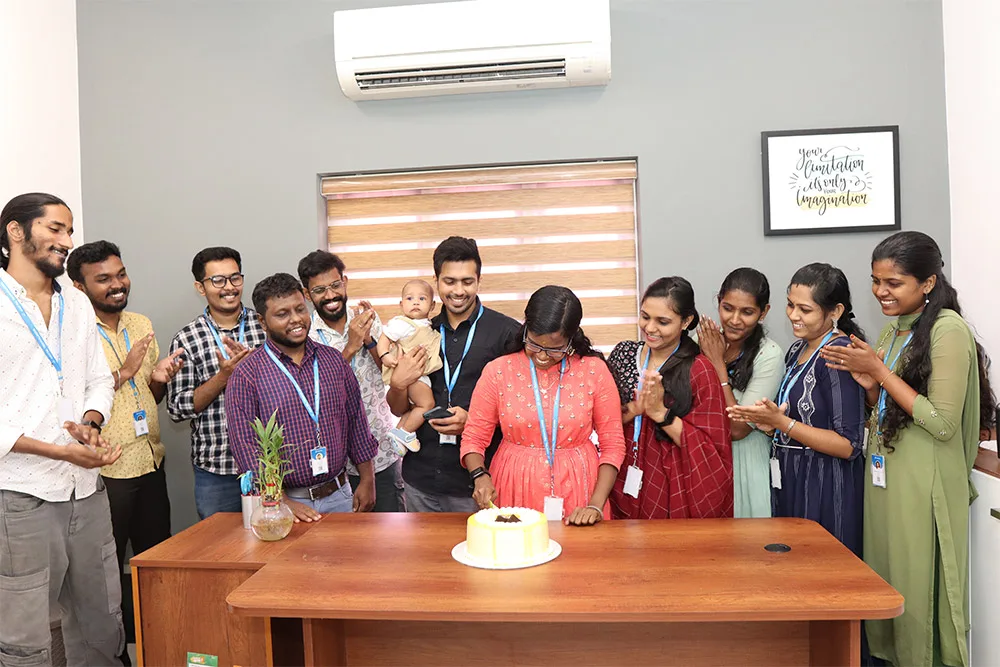
The workplace transformative trends are reshaping the way we work, collaborate, and define success. Companies need to actively shape how their teams work together and succeed in a changing business environment.
Key strategies include embracing diversity, fostering innovation, and improving employee engagement. A successful workplace promotes self-reliance and uncovers hidden talents. By adopting the latest trends, you can build a positive work culture where employees feel valued and drive business success.
Upskilling and Continuous Learning

Upskilling and ongoing learning are no longer an option – they’re essential for staying relevant and competitive. Companies that prioritize upskilling and invest in their employees professional development mostly have a significant advantage.
To foster a culture of continuous learning, consider implementing initiatives such as:
- Online courses, workshops, and training programs tailored to specific skill gaps.
- Mentorship programs that blend trained professionals with those pursuing guidance.
- Chances for cross-functional collaboration and also job rotations.
- Incentives and recognition for employees who actively pursue professional development.
Employee Well-being and Mental Health

Employee well-being and individual mental health have become top priorities for organizations. This trend continues gaining momentum as companies recognize the direct link between employee well-being and overall productivity and performance.
To support your employees’ well-being, consider implementing initiatives such as:
- Flexible work and work-life balance programs
- A way to mental health resources and counselling
- Wellness programs for physical, emotional, and one’s financial well-being
- Open communication and destigmatizing mental health
- Cultural celebrations

By prioritizing employee well-being, you’ll not only cultivate a happier and more engaged workforce but also contribute to a healthier and more sustainable work environment.
Increased Focus on Employee Experience

The employee experience will take centre stage as companies recognize the direct link between a positive employee experience and business success. Companies that prioritize creating a compelling and engaging employee experience have a noteworthy advantage in attracting and retaining top talent.
To enhance the employee experience, consider implementing initiatives such as:
- Personalized onboarding and training programs.
- Career development opportunities.
- Regular feedback and recognition programs.
- Positive company culture and proper values alignment.
- Investing in modern and ergonomic workspaces that promote productivity and well-being.
Rise of AI and Automation
AI and automation are rapidly remaking the workplace, and their impact will be even more pronounced. From streamlining recurring tasks to enhancing decision-creation processes, these new techs are revolutionizing the way we work.
To stay ahead, you need to:
- Upskill your workforce to work alongside AI and automation.
- Identify areas where AI and automation can enhance efficiency and productivity.
- Develop a strategic plan to integrate these technologies into your operations.
Employee Engagement

Fostering a highly engaged workforce has become a top priority for organizations. In 2025, there was a heightened focus on creating an environment that promotes employee well-being, recognition, and a sense of purpose. Strategies such as regular feedback loops, personalized development plans, and opportunities for meaningful contributions were implemented to enhance employee engagement and retention.
Strategies to Boost Employee Engagement:
- Continuous Feedback and Recognition: Implement regular check-ins, anonymous feedback platforms, and peer-to-peer recognition programs to foster a culture of open communication and appreciation.
- Personalized Development Plans: Tailor development opportunities to each employee’s unique strengths, interests, and career aspirations, ensuring they feel valued and supported in their growth.
- Meaningful Work Assignments: Align projects and tasks with employees’ passions and strengths, allowing them to contribute their expertise and feel a sense of purpose in their work.
Diversity, Equity, and Inclusion (DEI) Initiatives
In 2025, Diversity, Equity, and Inclusion (DEI) initiatives continued to be a top priority for forward-thinking organizations. Companies are acknowledging the value of diverse perspectives, experiences, and backgrounds in driving innovation, creativity, and business success.
To foster a truly inclusive workplace, you’ll need to:
- Implement comprehensive DEI training and education programs.
- Evaluate and address potential biases in recruitment, hiring, and promotion processes.
- Create employee resource groups and affinity networks to support underrepresented communities.
- Regularly assess and track DEI metrics to measure progress and identify areas for improvement.
Flexible Work Schedules

As work-life balance becomes increasingly important, flexible work schedules are gaining traction. In 2025, more companies embraced flexible arrangements, such as compact workweeks, remote work, and flexible start and end times.
To successfully implement flexible work schedules, you’ll need to:
- Establish clear policies and guidelines.
- Invest in technology and tools that enable remote collaboration and communication.
- Foster trust and accountability, focusing on results.
- Provide training and support to managers to effectively lead remote and flexible teams.
Peer Recognition
Peer recognition emerges as a powerful tool for boosting morale, fostering a positive company work culture, and retaining top talent. Companies will embrace platforms and initiatives that empower employees to acknowledge and celebrate each other’s contributions.
- Peer-to-Peer Recognition: Colleagues acknowledge performance.
- Social Recognition: Publicly celebrate achievements.
- Rewards: Offer gift cards, certificates, experiences, or time off.
Sustainable and Green Workplaces
As environmental concerns continue to escalate, sustainable and green workplaces become increasingly important in 2025. Companies realised the quick need to reduce their carbon footprint, to conserve resources, and adopt eco-friendly practices.
To create a sustainable and green workplace, consider implementing initiatives such as:
- Energy-efficient building designs and operations.
- Recycling and waste reduction programs.
- Sustainable procurement policies and supply chain management.
- Encouraging eco-friendly transportation options, such as carpooling, public transit, or cycling.
- Raising awareness and engaging employees in sustainability efforts through education and volunteer opportunities.
Work-Life Balance

Achieving a healthy work-life balance has evolved into a top priority for employees. Companies that register work-life balance have a significant advantage in attracting and retaining top talent.
To support work-life balance, consider implementing initiatives such as:
- Flexible/remote work arrangements
- Generous paid time off.
- On-site childcare facilities or subsidies for childcare expenses.
- Family leave policies.
- Wellness programs.
- Urging employees to disconnect after hours.
Co-worker Suggestions and Teamwork

In the collaborative and interconnected workplace of 2025, co-worker suggestions and teamwork play a crucial role in driving innovation and success. Companies that foster a method of open communication, collaboration, and knowledge sharing have a competitive edge.
To encourage co-worker suggestions and teamwork, consider implementing initiatives such as:
- Cross-functional project teams and collaborative workspaces.
- Idea-sharing platforms and suggestion boxes.
- Regular team-building activities and social events.
- Recognition and rewards for successful teamwork and innovative ideas.
Digital Transformation and Technology Integration
In the digital age, embracing digital transformation and technology integration is essential for staying competitive. In 2025, companies that effectively leverage technology to streamline processes, enhance collaboration, and drive innovation have a significant advantage.
To successfully navigate digital transformation and technology integration, consider implementing initiatives such as:
- Adopting cloud-based solutions and software-as-a-service (SaaS) platforms.
- Investing in cybersecurity measures.
- Implementing data analytics and business intelligence tools to drive data-driven decision-making.
- Providing training and support.
Transparent and Ethical Leadership
In 2025, employees demand transparency and ethical leadership from their organizations. Companies that prioritize transparency, accountability, and ethical decision-making foster trust and loyalty among their workforce and stakeholders.
To cultivate transparent and ethical leadership, consider implementing initiatives such as:
- Clear and open communication channels with employees and stakeholders.
- Robust governance and compliance frameworks.
- Ethical training and awareness programs for leaders and employees.
- Encouraging open dialogue and feedback loops.
- Aligning organizational values and actions with ethical principles.
To conclude, Recently, the workplace landscape underwent a profound transformation. From remote work and hybrid models to the rise of AI and automation, these trends reshaped the way we worked and redefined what it meant to be a successful organization. To thrive in this dynamic environment, companies needed to follow these trends.
By prioritizing employee well-being, fostering diversity and inclusion, investing in upskilling and continuous learning, and leveraging technology and digital transformation, companies positioned themselves for success in the years to come. The key to navigating these trends was to remain agile, open-minded, and committed to continuous improvement. Embracing the need to change, fostering a culture of innovation, and empowering employees work portfolio were crucial in driving organizations forward.



